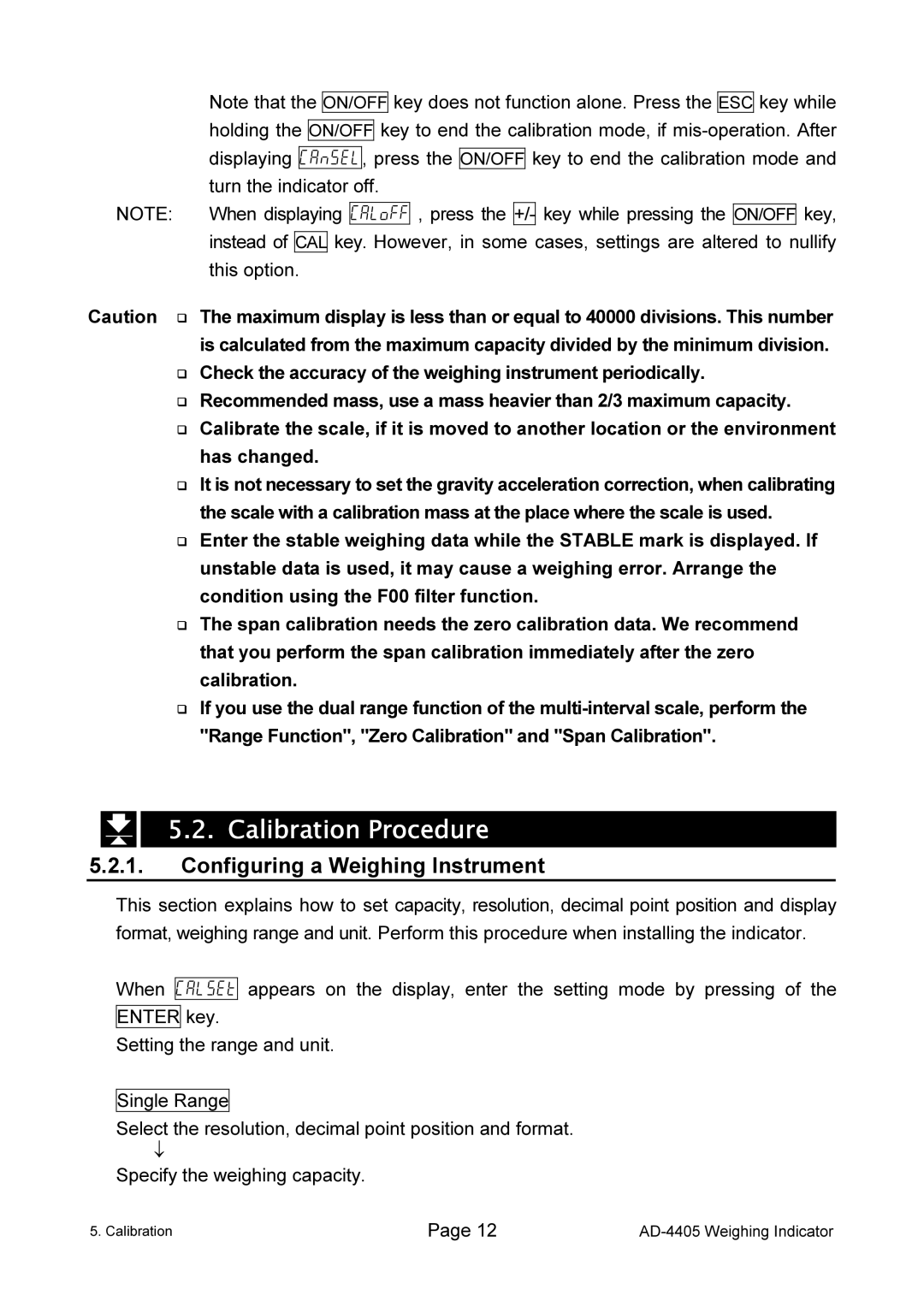
Note that the ON/OFF key does not function alone. Press the ESC key while holding the ON/OFF key to end the calibration mode, if
NOTE: When displaying Caloff , press the +/- key while pressing the ON/OFF key, instead of CAL key. However, in some cases, settings are altered to nullify this option.
Caution
The maximum display is less than or equal to 40000 divisions. This number is calculated from the maximum capacity divided by the minimum division. Check the accuracy of the weighing instrument periodically.
Recommended mass, use a mass heavier than 2/3 maximum capacity. Calibrate the scale, if it is moved to another location or the environment has changed.
It is not necessary to set the gravity acceleration correction, when calibrating the scale with a calibration mass at the place where the scale is used.
Enter the stable weighing data while the STABLE mark is displayed. If unstable data is used, it may cause a weighing error. Arrange the condition using the F00 filter function.
The span calibration needs the zero calibration data. We recommend that you perform the span calibration immediately after the zero calibration.
If you use the dual range function of the
5.2. Calibration Procedure
5.2.1.Configuring a Weighing Instrument
This section explains how to set capacity, resolution, decimal point position and display format, weighing range and unit. Perform this procedure when installing the indicator.
When Cal5et appears on the display, enter the setting mode by pressing of the ENTER key.
Setting the range and unit.
Single Range
Select the resolution, decimal point position and format.
¯
Specify the weighing capacity.
5. Calibration | Page 12 |
